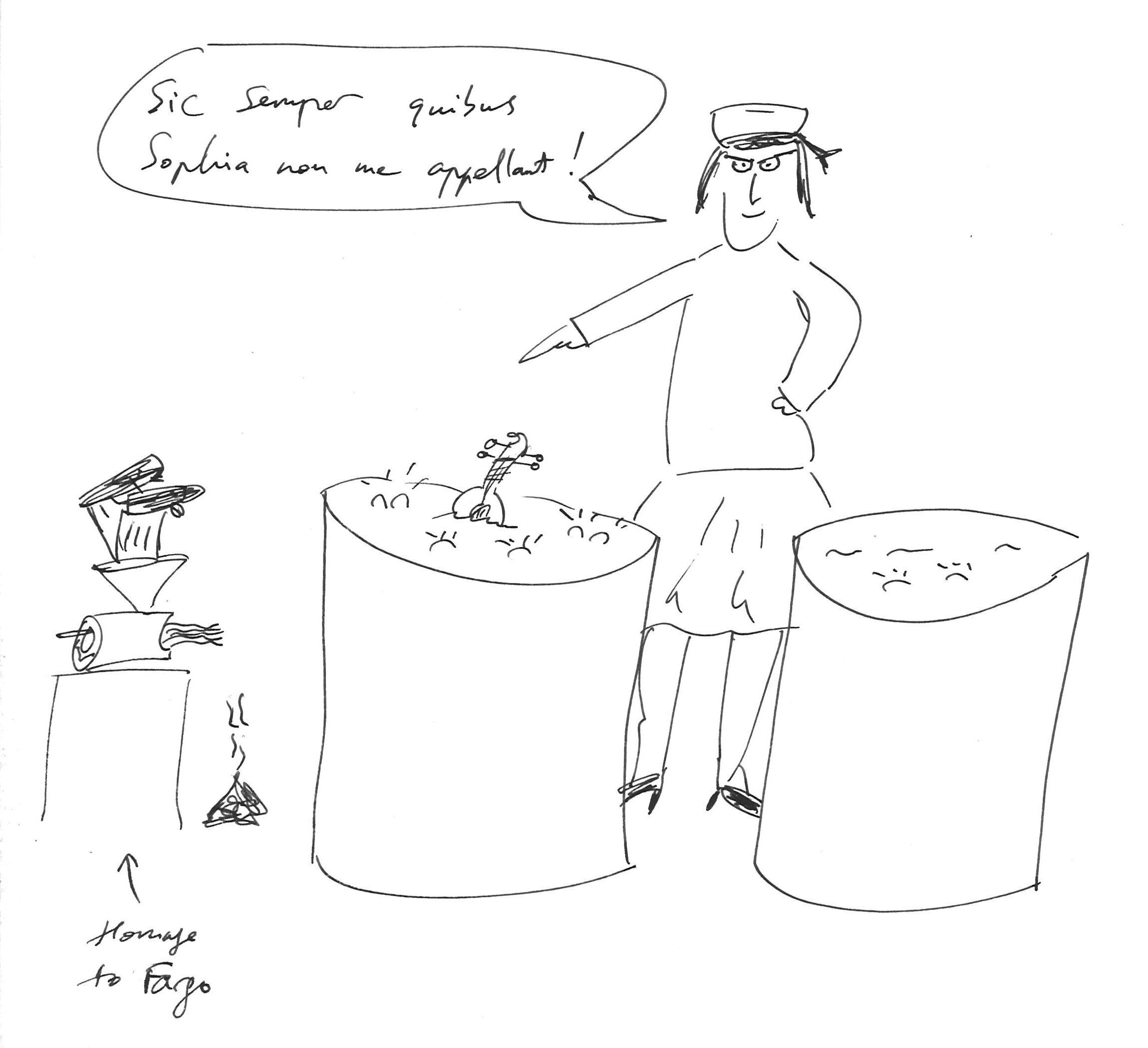In my Antipodean bonhomie, I have asked the no-nonsense Sophia de Tricht if I can call her Soph. Starting at https://www.quora.com/How-do-bel…
The exchange went swimmingly:
—The last person who called me Soph won’t be playing the violin anytime… well, ever
—So when I sold my violin and took up the mandolin a couple of years ago, it was a preemptive strike!
—I think a mandolin would also dissolve in one of the several 55 gallon drums of acid that guy is currently a greasy film on the top of
And capped off, of course, with:
https://www.quora.com/How-do-bel…
You’ve heard of Sic Semper Tyrannis, right?
Well, this is “Sic Semper To Anyone who doesn’t call me Sophia”.
I trust the heels + sailor cap ensemble adequately captures your whole I Mean Business vibe, does it not?
